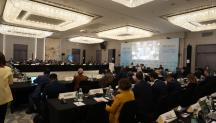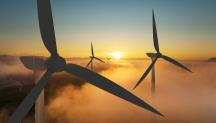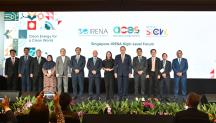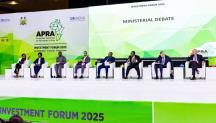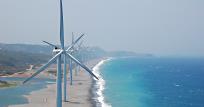
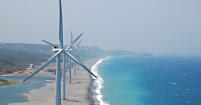
Renewables Hold Great Promise for Philippines
Newsletter
Abu Dhabi, United Arab Emirates, 31 March 2017 – Renewable energy sector policy making and institutional evolution can support maintaining Philippines’ development momentum and allow it to achieve energy independence, according to a new report released by the International Renewable Energy Agency (IRENA). Renewables Readiness Assessment: Philippines identifies issues that the country needs to resolve to unlock the full potential of its renewable energy resources.
“Like many countries in its region, the Philippines faces a growing population and rising energy demand to power economic growth. Uniquely, the archipelago is also frequently exposed to tropical storms and natural disasters that affect its energy structure. Renewable energy can play a role in helping the country achieve greater energy security and distribution despite these challenges,” said IRENA Director-General Adnan Z. Amin.
“The Philippines’ more than seven thousand islands hold great renewable energy potential that includes solar, wind, hydro, bioenergy, and geothermal resources. Utilising these resources, and guided with the support of IRENA, the country is in a strong position to reap the socioeconomic benefits of renewables and grow the Philippines economy,” Mr. Amin added.
Renewables Readiness Assessment: Philippines examines the energy sector holistically and identifies barriers, as well as key actions to accelerate renewable energy deployment. The report puts forward options to strengthen the Philippines’ renewable energy policy, regulatory and institutional framework. It includes an assessment of the country’s grid infrastructure and examines the institutional capacity in the Philippine renewable energy sector, along with the potential for electrification through renewable-based mini- and micro-grid solutions.
“The Philippines has been exploring a variety of options to build an energy independent future supplied by sustainable, stable, secure, sufficient, accessible and reasonably-priced energy sources. In pursuit of this ultimate goal, the Philippines has stepped up its efforts in promoting the deployment of indigenous renewables energy over the past few years,” said Alfonso G. Cusi, the Philippines’ Secretary of Energy.
Resolved to bolster its energy security, pursue low-carbon economic development, and address climate change, in 2011 the Philippines set an ambitious renewable energy target of 15.3 gigawatts by 2030 – a near tripling of 2010’s 5,438 megawatts.
Additionally, the Association of Southeast Asian Nations recently set a regional renewable energy target of 23 per cent by 2025, further committing the Philippines to the pursuit of clean and sustainable energy.
The readiness assessment recommends the country undertakes a number of concrete measures to support the Philippines implementation of renewables and to fine tune the country’s renewable energy policy, and regulatory and institutional framework. These recommendations include:
- Raising public awareness of renewable energy solutions to ensure sustained political commitment.
- Assessing the country’s grid infrastructure to allow the development of proactive energy planning and training.
- Examining institutional capacity in the Philippine renewable energy sector so as to identify skills and resource deficiencies and enable more effective capacity-building programmes.
- Studying the potential for renewable electrification through mini- and microgrids, and develop policies and regulatory frameworks for attracting investment and private sector engagement.
Download the assessment here.

